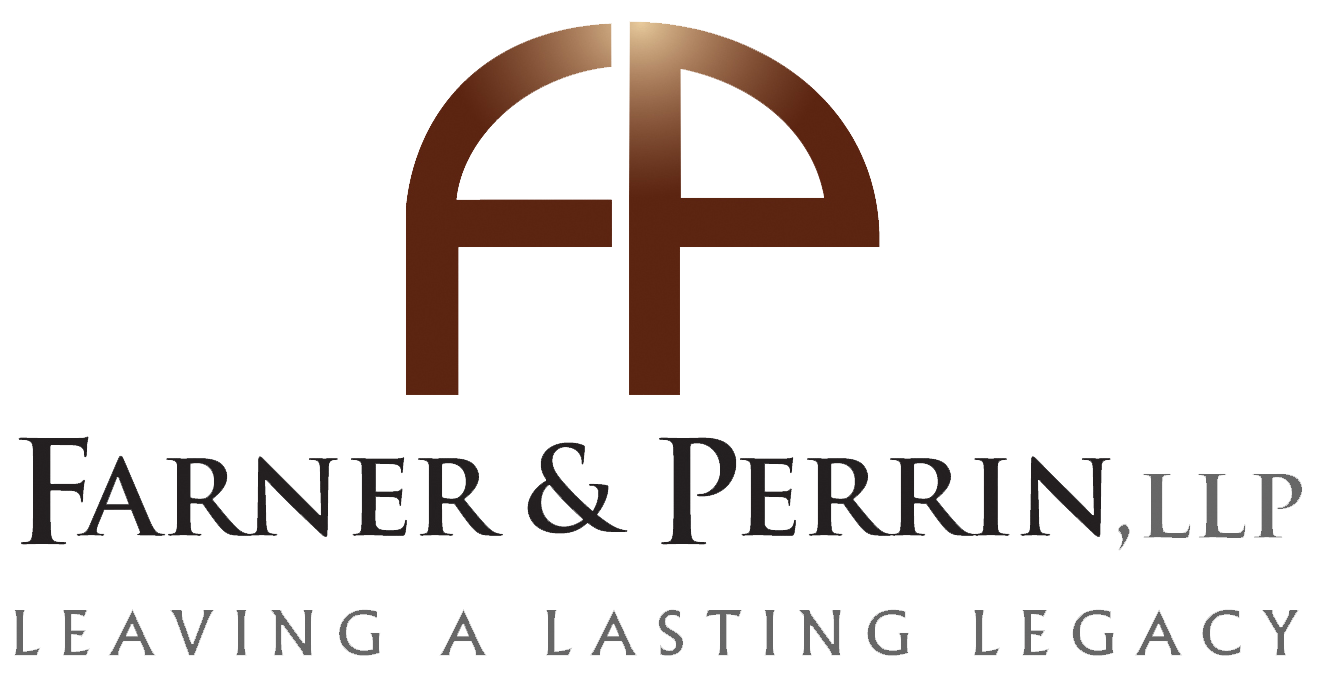Our Philosophy
 Many people have the mistaken impression that estate planning revolves around tax planning. While taxes are an important consideration in any planning, the primary focus of estate planning should be to direct the disposition of one’s property to the people desired and in the form that achieves one’s unique objectives.
Many people have the mistaken impression that estate planning revolves around tax planning. While taxes are an important consideration in any planning, the primary focus of estate planning should be to direct the disposition of one’s property to the people desired and in the form that achieves one’s unique objectives.
The estate planning lawyer’s job is to stay centered on the client’s unique “end game,” while incorporating tax planning where appropriate. This involves, first and foremost, the attorney/client relationship being solid enough so that the client feels comfortable sharing sensitive, personal information. At Farner & Perrin, L.L.P., we take the time to develop those relationships with our clients, and are pleased when we become an important advisor on whom clients rely at critical and challenging junctures in their lives. We pride ourselves in making every effort to communicate with our clients in a clear manner, so they can make informed decisions. We are not interested in building a Firm structure with layers of personnel, but are committed instead to building personal relationships with our clients. We treat all our clients with the same level of attention and respect, regardless of their level of wealth, believing strongly that this is the calling of our profession.
To be sure, we help our clients undertake sophisticated tax planning where appropriate. Trusts, family partnerships and other limited liability entities can be configured into an estate plan to accomplish business succession, asset preservation and tax goals. Life insurance, if properly structured, can provide estate liquidity without being considered a part of the estate tax base. Retirement plans can be adjusted so as to allow for as much post-death income tax deferral as possible. Charitable giving can be incorporated in the most tax-favored manner, so as to give to charity while reaping maximum tax benefits. But all of these technical features pale in comparison to a person’s legacy. Money is an unquestionably powerful tool. It is yours to steward while you are alive, and yours to pass when you die in a way that will perpetuate your legacy.
Finally, we genuinely enjoy the work that we do, and still believe that lawyers should conduct themselves as one of the “helping” professions. We look forward to the opportunity to help you achieve your legacy objectives.
